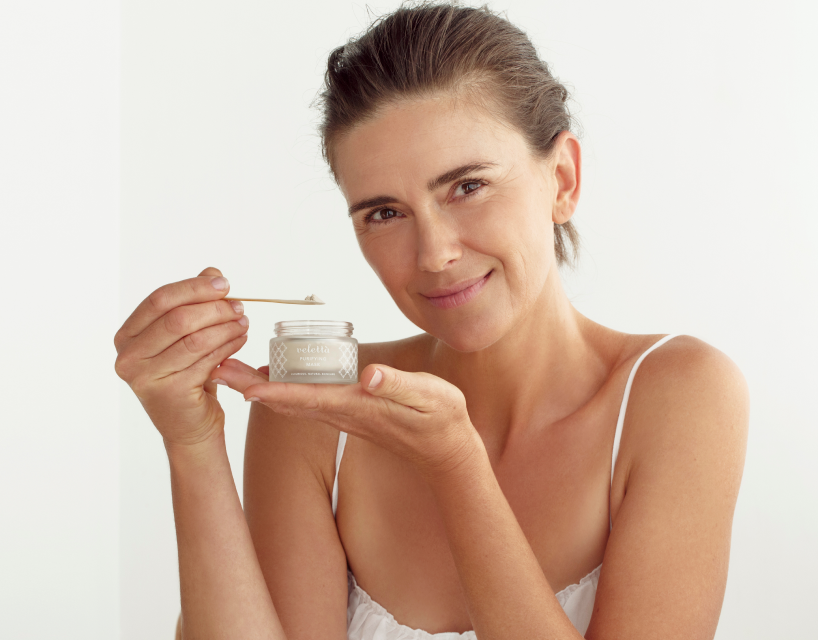Women 40+ need Zinc - how to get what you need!

Posted by Sarah Bacon on
The years after 40 are a critical phase in a woman's life marked by hormonal shifts, metabolic changes, and potential health concerns. Among the many nutrients vital for women's health during this period, zinc stands out as a cornerstone mineral with multifaceted benefits. As women navigate through their middle years, ensuring an adequate intake of zinc becomes paramount for sustaining overall well-being.
Zinc plays a pivotal role in numerous physiological processes, making it indispensable for women in middle age. Firstly, it supports immune function, acting as a powerful antioxidant that combats oxidative stress and bolsters the body's defense mechanisms. This is particularly crucial as women age and their immune system may weaken, leaving them more susceptible to infections and illnesses.
Moreover, zinc is intricately involved in hormone regulation, including the synthesis and metabolism of estrogen and progesterone. These hormones play crucial roles in maintaining bone density, managing menopausal symptoms, and regulating mood. By ensuring optimal zinc levels, women can potentially alleviate symptoms associated with hormonal fluctuations, such as hot flashes, mood swings, and decreased bone density.
Furthermore, zinc contributes to skin health, wound healing, and collagen production, all of which can become increasingly important concerns for women as they age. Collagen, in particular, is essential for maintaining skin elasticity and preventing the formation of wrinkles, which tend to become more pronounced during middle age.
Fortunately, incorporating zinc into one's diet is achievable through a variety of nutrient-rich foods. Shellfish, such as oysters, crab, and shrimp, are among the most zinc-dense foods available. Additionally, lean meats like beef and poultry, as well as dairy products like cheese and yogurt, provide substantial amounts of this vital mineral.
For vegetarians and vegans, plant-based sources of zinc include legumes like chickpeas, lentils, and beans, as well as seeds such as pumpkin seeds, hemp seeds, and flaxseeds. Whole grains like quinoa and brown rice also contribute to zinc intake, albeit in smaller amounts.
Moreover, incorporating zinc-rich fruits and vegetables into one's diet can further enhance overall zinc intake. Foods like spinach, kale, mushrooms, and avocados not only provide zinc but also offer a plethora of other essential nutrients, contributing to a well-rounded and healthful diet.
While obtaining zinc through dietary sources is preferable, supplementation may be necessary for individuals at risk of deficiency, such as those with limited dietary diversity or absorption issues. However, it's important to consult with a healthcare professional before starting any supplementation regimen to ensure safety and efficacy.
By prioritising zinc-rich foods in their diet, women can empower themselves to navigate aging with strength, vitality, and confidence.
Zinc plays a pivotal role in numerous physiological processes, making it indispensable for women in middle age. Firstly, it supports immune function, acting as a powerful antioxidant that combats oxidative stress and bolsters the body's defense mechanisms. This is particularly crucial as women age and their immune system may weaken, leaving them more susceptible to infections and illnesses.
Moreover, zinc is intricately involved in hormone regulation, including the synthesis and metabolism of estrogen and progesterone. These hormones play crucial roles in maintaining bone density, managing menopausal symptoms, and regulating mood. By ensuring optimal zinc levels, women can potentially alleviate symptoms associated with hormonal fluctuations, such as hot flashes, mood swings, and decreased bone density.
Furthermore, zinc contributes to skin health, wound healing, and collagen production, all of which can become increasingly important concerns for women as they age. Collagen, in particular, is essential for maintaining skin elasticity and preventing the formation of wrinkles, which tend to become more pronounced during middle age.
Fortunately, incorporating zinc into one's diet is achievable through a variety of nutrient-rich foods. Shellfish, such as oysters, crab, and shrimp, are among the most zinc-dense foods available. Additionally, lean meats like beef and poultry, as well as dairy products like cheese and yogurt, provide substantial amounts of this vital mineral.
For vegetarians and vegans, plant-based sources of zinc include legumes like chickpeas, lentils, and beans, as well as seeds such as pumpkin seeds, hemp seeds, and flaxseeds. Whole grains like quinoa and brown rice also contribute to zinc intake, albeit in smaller amounts.
Moreover, incorporating zinc-rich fruits and vegetables into one's diet can further enhance overall zinc intake. Foods like spinach, kale, mushrooms, and avocados not only provide zinc but also offer a plethora of other essential nutrients, contributing to a well-rounded and healthful diet.
While obtaining zinc through dietary sources is preferable, supplementation may be necessary for individuals at risk of deficiency, such as those with limited dietary diversity or absorption issues. However, it's important to consult with a healthcare professional before starting any supplementation regimen to ensure safety and efficacy.
By prioritising zinc-rich foods in their diet, women can empower themselves to navigate aging with strength, vitality, and confidence.



